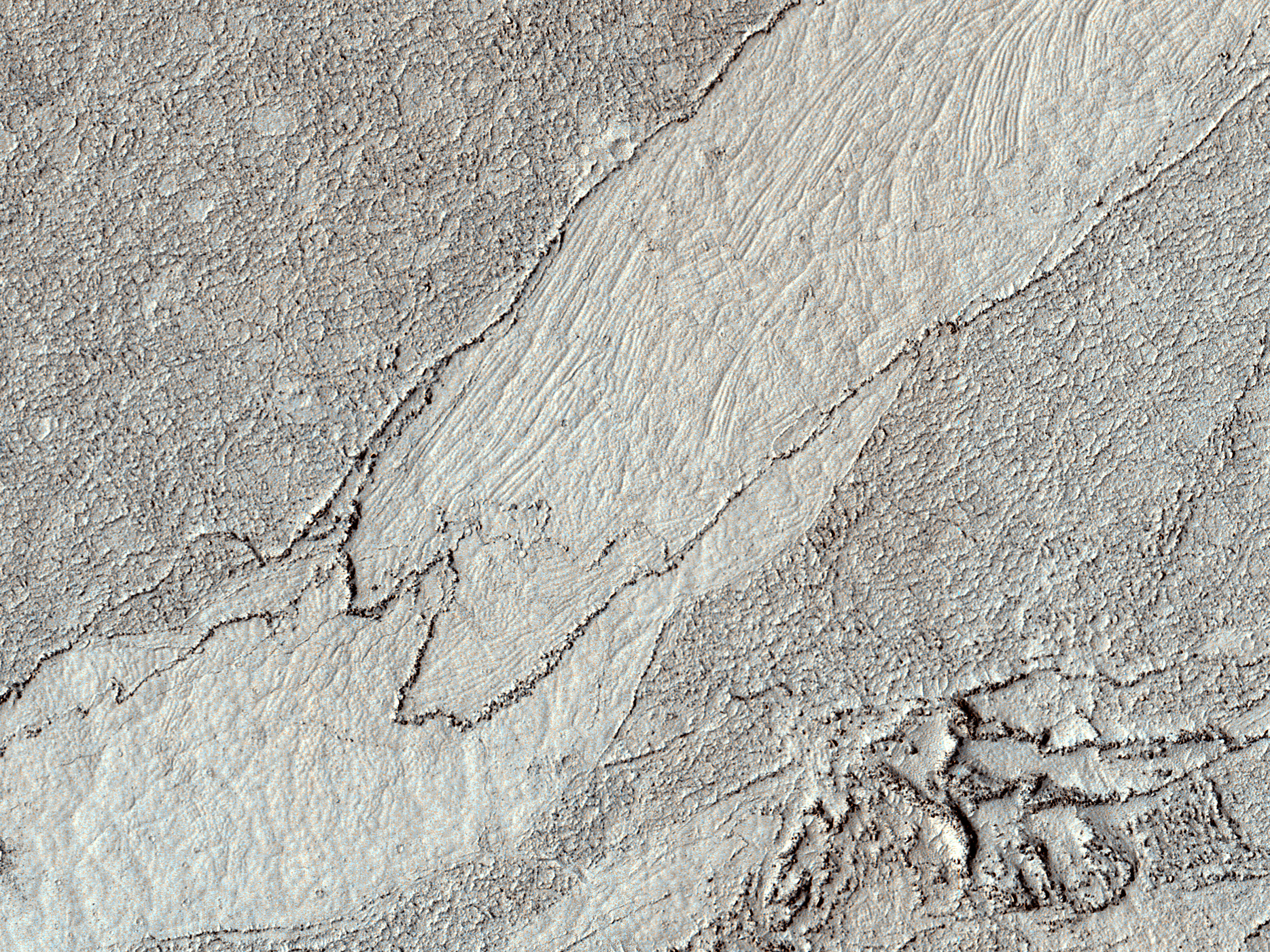This HiRISE image shows a classic example of platy-ridged lava. Scientists think that this is the same as a lava type called “rubbly pahoehoe” on Earth.
In this lava, a crust of rubble forms as the lava partially cools but then tears up its own cover. Eventually, the rubble can form plates that can be rafted apart as the lava cools further, producing textures like those visible on terrestrial lava lakes that have cooled.
We see here a complex history of these processes.
There are two different shapes of the rubble (at right, and top left/bottom center) indicating two stages of formation. The smooth area at center also is divided into two domains with different polygon styles, indicating that the rift opened, partially cooled, and then opened further.
ID:
ESP_077061_1845date: 3 January 2023
altitude: 272 km
https://uahirise.org/hipod/ESP_077061_1845
NASA/JPL-Caltech/University of Arizona
#Mars #science #NASA
